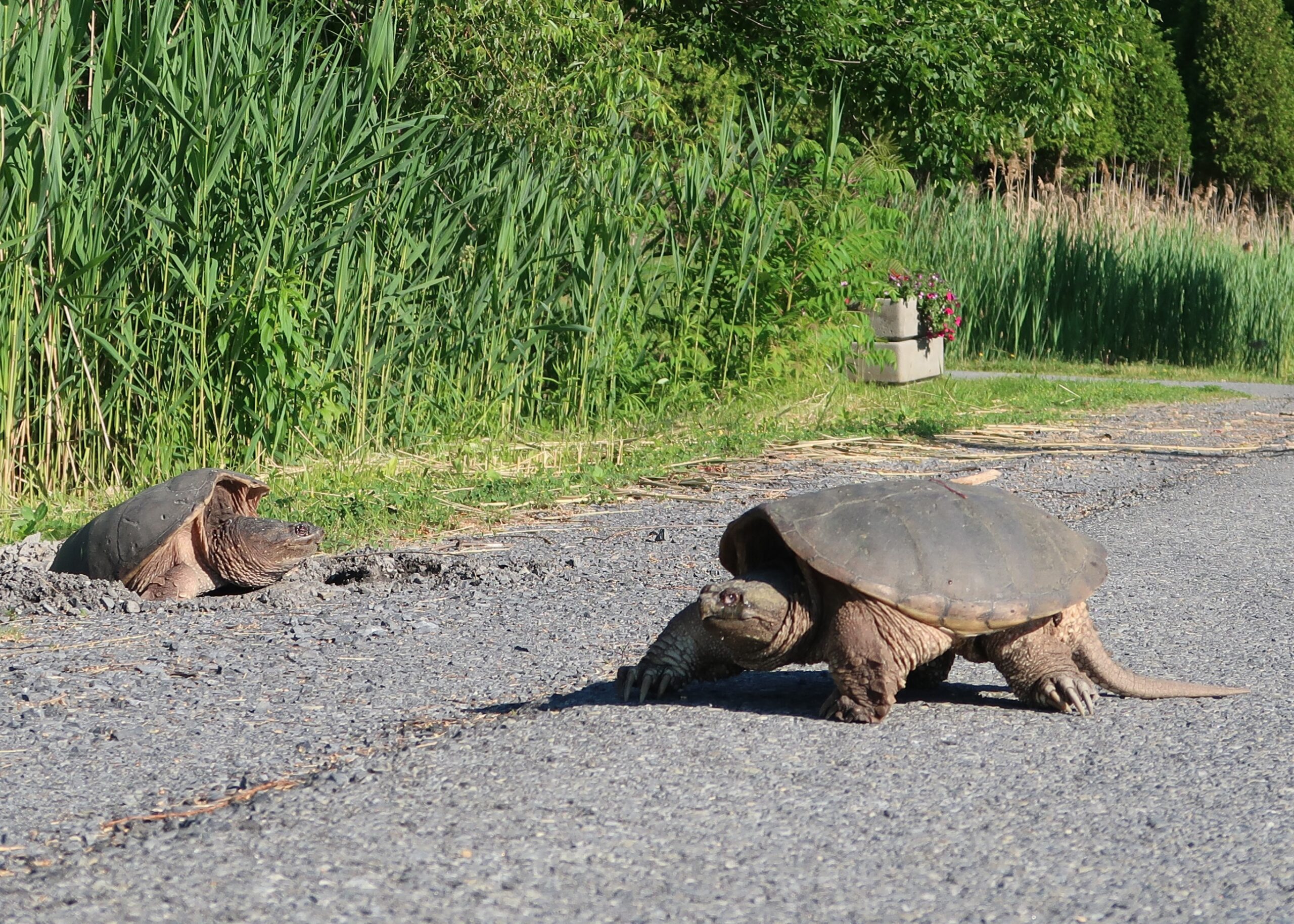No products in the cart.
Turtles On the Move in RRCA Conservation Areas
The arrival of warmer weather has been attracting more than local residents to the Raisin Region Conservation Authority (RRCA)’s three Conservation Areas in the region.Turtles are now a frequent sight at Cooper Marsh, Charlottenburgh Park and Gray’s Creek Conservation Areas, either basking on floating logs and platforms, or nesting where appropriate locations are found.
“Females will be on the lookout for ideal nesting sites,” says Brendan Jacobs, Stewardship Specialist at the RRCA. “They will often nest on open trails and in gardens or lawns, where the loose, well drained, and sunlit soil makes for ideal nesting conditions.Unfortunately, they often choose roadside shoulders for the same reason, and so expose themselves to being injured or killed by motor vehicles” he adds.
Jacobs urges motorists to drive with caution and pay attention to turtle crossing signs in the area.“Should you happen to see a turtle on a roadway,if it is safe to do so,you can help it to cross by lifting it with a hand on each side of the turtle, between the front and back legs, and bringing it to the other side of the road in the direction it was originally heading,” Jacobs says, adding that people should stay at least 10 meters away from a nesting turtle.
The RRCA’s Conservation Areas are important turtle habitat. The RRCA will be constructing and installing fifteen additional turtle basking platforms at Cooper Marsh during the month of June.“These platforms will both enhance the turtle habitat at Cooper Marsh and provide an increased opportunity for visitors to see and experience turtles in their natural environment,” says Jessica Herrington, Stewardship Coordinator at the RRCA, who is overseeing the project.
Turtle sightings can be reported to Ontario Nature’s Reptile and Amphibian Atlas at www.ontarionature.org.
Conservation Area visitors are reminded to clean up after their dogs and keep them on a leash. Dogs are not permitted at Cooper Marsh due to the sensitive nature of the habitat. Visitors are also reminded to follow COVID-19 public health guidelines and to be mindful of ticks whenever they spend time in nature.
For directions to the RRCA’s Conservation Areas visit rrca.on.ca or contact (613) 938-3611or in**@rr**.ca.






